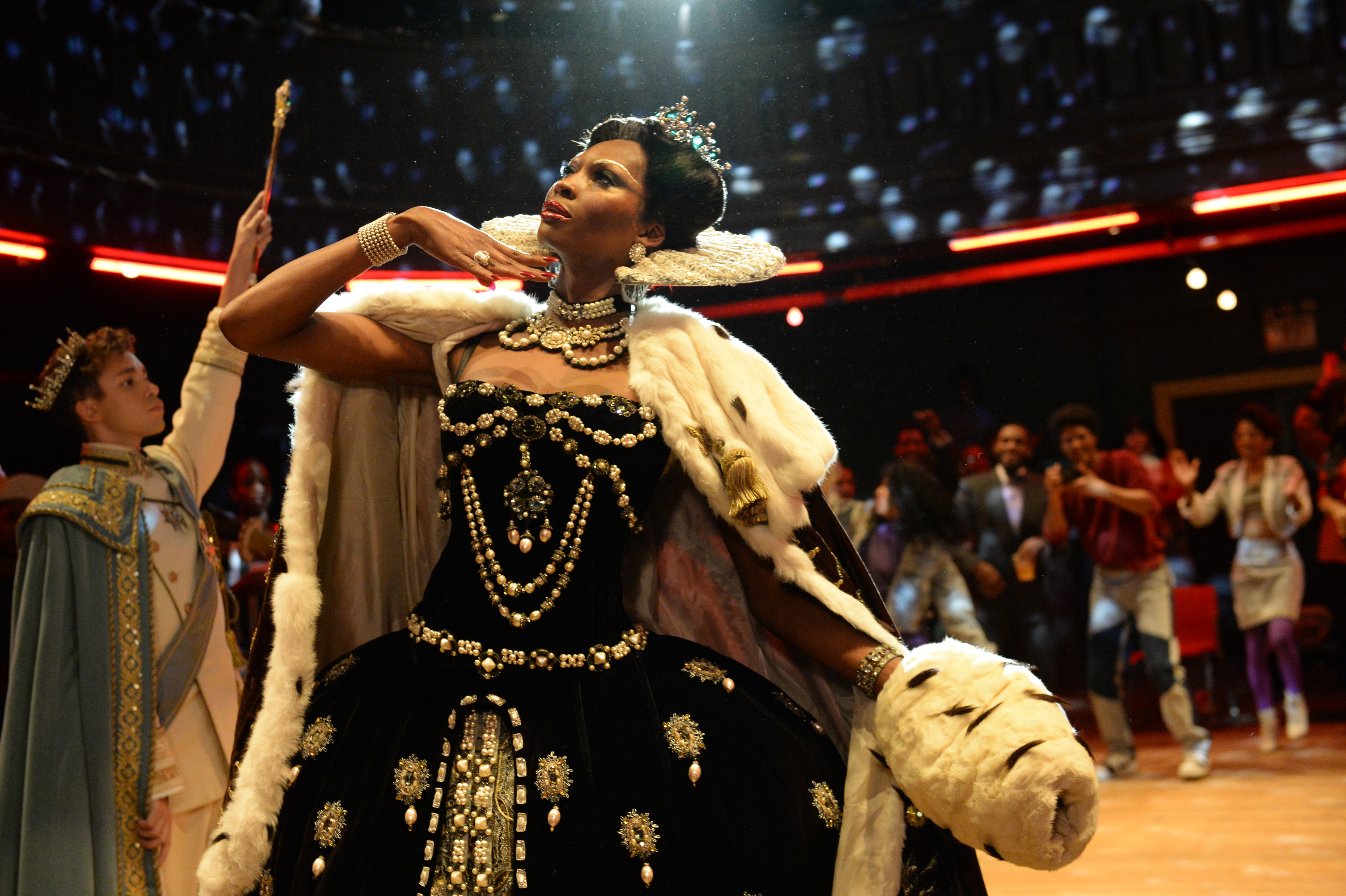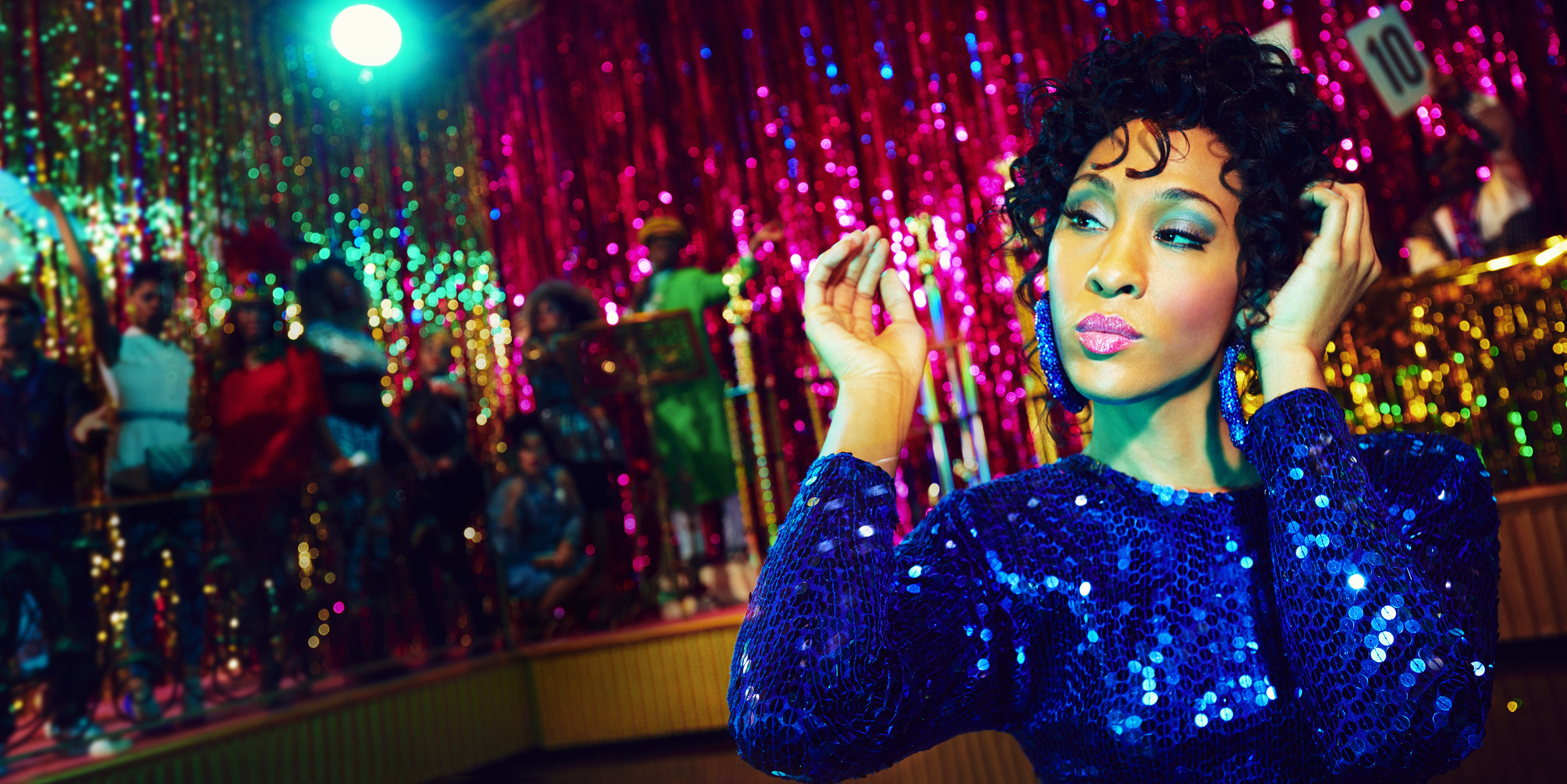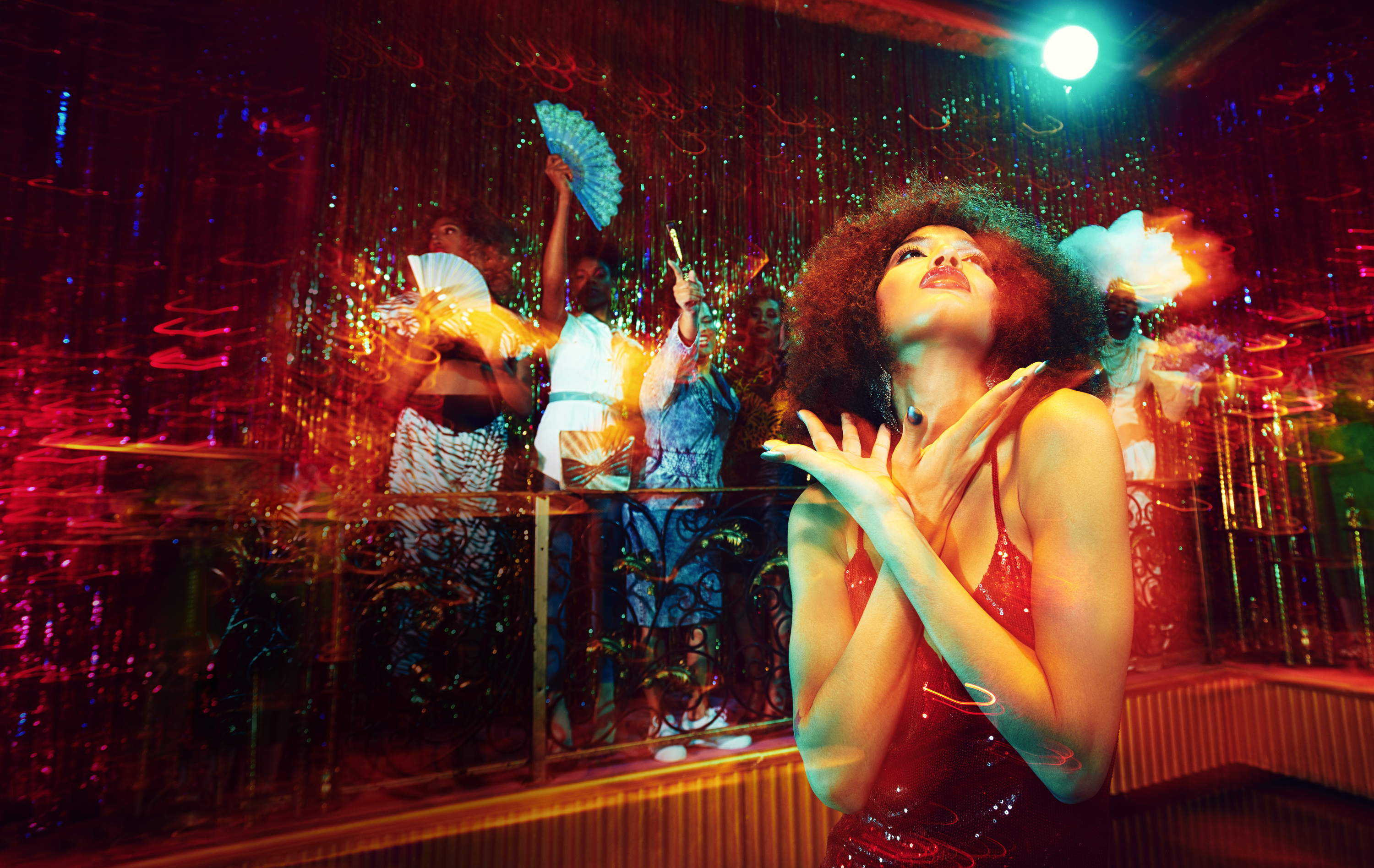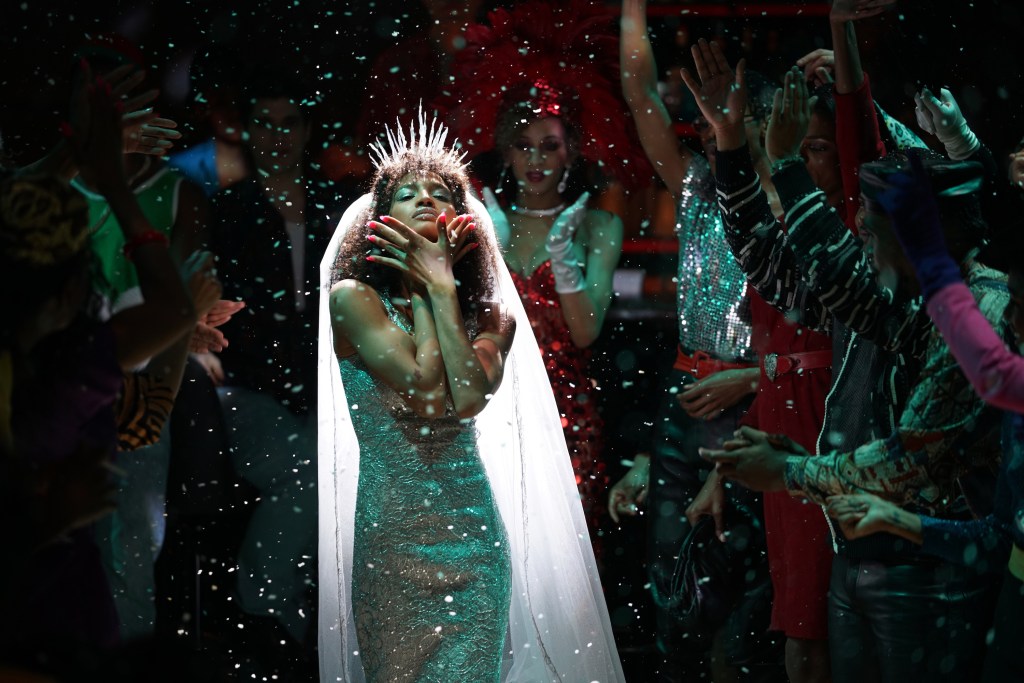Pose is one of the greatest television shows I have ever seen. It’s so good at capturing truths, both beautiful and painful, that I found it hard to watch.
There are many achievements that make Ryan Murphy’s FX series about trans women and gay men of color a standout: the series has more transgender regulars (five) than any show ever made; Janet Mock became the first trans woman of color to write, direct, and produce a TV series; it’s been widely lauded for its progressive, truthful storytelling. The pioneering show chronicles the lives of Black and Latinx LGBTQ New Yorkers in the late 80s and explores the city’s ballroom scene, the HIV crisis, homelessness, and broader themes like love and family. Pose documents American culture from a historically unseen perspective, telling a story that extends beyond its central characters and throwing shade at a nation that has marginalized its own and turned a blind eye to an epidemic.
Videos by VICE
The stars of Pose are the women—Blanca (Mj Rodriguez), Elektra (Dominique Jackson), and Angel (Indya Moore)—who are members of Houses. For those unfamiliar with Houses: Homeless LGBTQ youth often join these collectives, which are akin to families, for food, shelter, and kinship. Elektra is the mother at the helm of the House of Abundance; Blanca is mother to the House of Evangelista, and Angel is one of her children. The Houses of Pose compete in the ballroom scene under the auspices of the master of ceremonies, Pray Tell, a Black gay man portrayed by Billy Porter.
Elektra steals hearts from the series premiere, when she and her children of the House of Abundance break into a museum to take authentic garments for a royalty-themed ball. She is intimidatingly beautiful, ruthless, and self-possessed—attributes that might easily be criticized, were it not for the show’s expert character-crafting. Elektra embodies the memory of viper-tongued trans icons that many people in the LGBTQ community have known and loved—she recalls fierce legends like Crystal Labeija.
Elektra is a kept woman. While Angel dances in XXX peep show booths for money, Elektra relies on a man of wealth and power named Mr. Ford (Christopher Meloni) to provide her with a private apartment, a private car, clothing, and an allowance to house herself and her children. Though their day-to-day lives look like opposite ends of the spectrum, Angel and Elektra’s stories highlight a common experience for many trans women: having no other way to make money than selling their bodies or entering arrangements under the authority of a male partner. In Elektra’s case, the lines blur—unlike Angel, who is dispassionate about her arrangement, Elektra feels that Mr. Ford must really love her.

The show’s central drama starts when Blanca, an HIV-positive trans woman, leaves Elektra’s House to start her own—the House of Evangelista. Blanca is one of the pillars of Pose, and her relationship with Pray Tell is a beautiful and heartbreaking image of kinship between gay men and trans women at the height of the AIDS epidemic. Pray Tell’s partner dies of the disease mid-season, and he opens up to Blanca, who remains supportive of him even as she endures the loss of her biological mother. When Blanca returns home, the audience is confronted by a common but rarely seen reality for trans people: contending with a family that refuses to acknowledge your identity and blames you for causing harm to those you love because you were born different. We see why she feels an overwhelming responsibility to take in others in need of a home.
Blanca gives meaning to the buzzword “community,” coping with the cruel, deadly world by loving her chosen family fiercely. Not only is she a mother to young trans women like Angel, but she takes in queer homeless youth like Papi, Ricky, and Damon, too. She teaches her children about HIV, takes them to get tested, and requires they receive some sort of education, even finding a way to strong-arm Damon into an audition for the New School of Dance after he misses the application deadline. Blanca’s relationships with her children paint a poignant, heartbreaking portrait of supporting your chosen family when your biological one abandons you for being different, and, perhaps most gut-wrenchingly, figuring out, together, how to find joy in life amidst a fatal epidemic.

These stories remind me of real people I have known, loved, or heard of—and people who were here long before I was, who may not be remembered more widely. Pose makes you care about its characters, and if you care about them, you must turn to face the ugly, real-life issues their plotlines are informed by. There are many reasons why Pose feels too close, too true, too poignant, and almost too good, but Angel and Elektra’s love stories really hurt to watch. Their experiences portray fighting for love and identity in a world that brutally denies both, and what happens when you have to choose one over the other.
Angel, a street-based sex worker and peep-show dancer, catches the eye of an all-American finance guy Stan Bowes (Evan Peters). The middle-class white man meets her while cruising down the West Side Highway, a popular hangout for trans sex workers during the 80s. He has a wife and kids, but is attracted to trans women and terrified by that desire.
It’s easy to dismiss men like Stan as faceless strangers with fetishes, but trans-amorous men are everywhere, and their untold stories of sexual identity crises are some of the last to be torn loose from traditional social structures. Discourse around trans people is so obsessed with our bodies that other sides of our stories—like the people we love, and the people who love us—are often left out of the conversation entirely. Peters’ portrayal of Stan gives life to the kind of men who are rarely (if ever) depicted on screen with accuracy or sensitivity.
When trans people are forced to conceal their identities from the world or from themselves, we rot inside from the pain of playing at a fake life, and trans-amorous men also face immense isolation: They’re not allowed to live freely as who they are, and with whom they love. Stan may seem like he fits into the mold of the ideal American man, but as he confesses many times to Angel, he feels suffocated by his fake life and overwhelmed by feelings of isolation, self-hatred, and the dueling fears of losing everything else he has versus never allowing himself the love he craves.

Stan yearns for the authenticity and freedom he sees in Angel’s life. Though he rents an apartment for her, she remains hardened, and hesitant to believe he really cares—a trait some trans women develop from being publicly demonized and privately fetishized. Angel is only human, though, and falls deeply for Stan. When his wife discovers their affair, Stan takes the ousting from his home as an opportunity. He goes to Angel, telling her he wants to learn about and be a more active part of her life. For a moment, it feels as if Angel and Stan might be able to love each other fully, but once he gets a taste of her world, the juxtaposition of his buttoned-up life and the eccentric splendor of the queer underground proves too jarring.
Elektra’s story also depicts the experience of trans women bound, by some degree, to the rules set by men who desire them. Elektra must contend with a difficult decision: fulfilling her personal dream of having gender-confirmation surgery, or risking the loss of her lover and keeper, Mr. Ford, who makes it clear that, under their arrangement, she cannot undergo vaginoplasty. A self-determined mistress of her own creation, it’s unsurprising that Elektra decides to go forward with her decision despite Mr. Ford’s wishes. Sadly, it’s equally unsurprising that, although Elektra briefly hoped he loved her enough to stay, Mr. Ford disappears from her life as a result, leaving Elektra penniless after years of luxury living. Elektra’s fall reflects the many sacrifices trans woman must make to have a home; to be fed and cared for; to be loved—and the sacrifice of choosing autonomy, which can come at an immense cost: Elektra chose herself over a man’s desires, and was, suddenly, on her own again.
At this point in her journey, viewers admire and fear Elektra as much as the children at the balls do. She seems so untouchable; so powerful. We never expected to see Elektra, of all people, dancing at the same peep show as Angel—but therein lies the most painful lesson of her story: Though Elektra reigns supreme in the ballroom, though she is possessed by a sense of superiority and is sometimes cruel to others, and though she enviably benefited for years by relying on a man of privilege—she was, in the end, just one luxury allowance away from the plight of unemployment, homelessness, and violence faced by her sisters, brothers, and children.
Watching Elektra choose herself over Mr. Ford, seeing Stan fail Angel, I am reminded of the loneliness trans women and trans-amorous men are sometimes forced to endure due to circumstances beyond their control. Their love is as real as the social mores that ultimately make their relationships impossible. It’s infuriatingly true to life.
For More Stories Like This, Sign Up for Our Newsletter
Pose is a ruthless truth-teller—an entrancing saga that captures your attention with flashy lights and bursts of glitter, ultimately delivering a devastating story of America that has never been told from this vantage point. Before Pose, I had rarely seen a transgender character whose gender didn’t feel like the thrust of their storyline. That the show masterfully tells stories that are so politically and culturally informative and progressive without having those stories defined by those qualities is a testament to the production team who made the series what it is—notably, trans women Our Lady J and Janet Mock. Pose sets a new precedent for valuing and speaking honestly about trans lives.
Pose has been renewed for a second season. In the close of its first, the characters confront the necessity of self-recognition for survival: They must believe in the validity of one’s self—otherwise, they’ll never make it. It’s a lesson the cast of Pose learns together, and that mothers like Blanca and Elektra share with their children: No man can save you, but maybe we can save one another.
More
From VICE
-

Anadolu/Contributor/Getty Images -

(Photo by Maddie Meyer/Getty Images) -

(BERTRAND GUAY/AFP via Getty Images)

